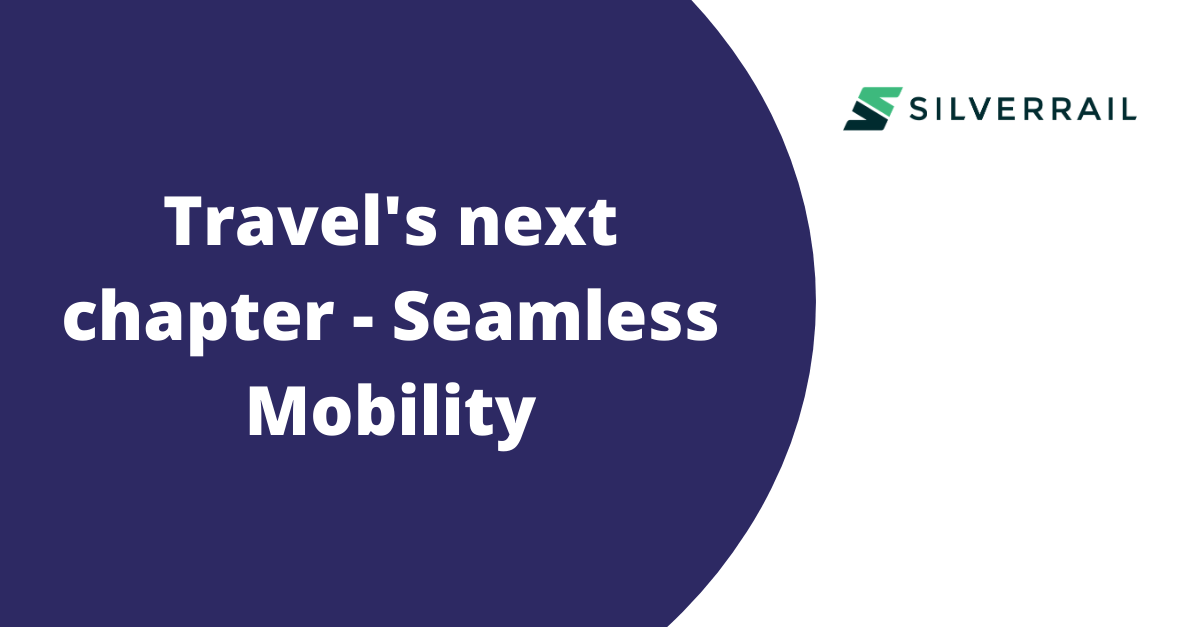TRAVEL'S NEXT CHAPTER - SEAMLESS MOBILITY
13/10/2016
Written by Frederic Kalinke
Aaron Gowell, CEO of SilverRail Technologies, reveals Travel’s Next Chapter – Seamless Mobility at Skift Global Forum
In a recent talk at the Skift Global Forum 2016 (becoming known as the “TED talks of the travel industry”) – Aaron Gowell, CEO of SilverRail Technologies, shared his views on “Travel’s Next Chapter – Seamless Mobility”.
In his presentation, Aaron discusses two chapters for online travel. The first, and current, focuses on ‘wiring up’ all of the big travel products -flights, cruises, taxis, rental cars, buses, trams and trains – to the web enabling consumers to access, search and book them. This has evolved over the past 20 years, with the last major travel product, rail, finally joining the online party in the last few years; “and that’s what SilverRail is doing” explained Aaron.
He goes on to say: “I think that the next wave of innovation we’re going to see is not just about the Uber’s of the world; it’s going to be how we think about planning and transacting across multiple modes [of travel].” Chapter two, for Aaron (and SilverRail, which is already innovating in this field), is less about innovation around the big-ticket items of travel (air, hotel, holiday) but around the developments focusing on high-frequency, day-of and on-demand transport options – products like Uber, Lyft, BlaBlaCar, Citymapper – even Google Maps.
At the moment, travelling anywhere mostly requires the use of multiple companies on multiple apps. Aaron explores what it would be like if there was another way – where every part of a potential journey can be planned and booked in one place. As he says, this is the next logical step in our travel booking story.
He goes on to explain that the state of travel bookings is already complex and it is only going to get worse. The biggest challenge upon us is the expansion and growth of mega cities. In 2030 it is predicted that there will be 40 such cities around the world, compared to just four in 1980. This puts increased pressure on cities’ infrastructure, whilst creating greater congestion, pollution and travel stress. In efforts to decarbonise the economy, national and city governments are already seeking to change the way people travel, getting them out of their cars and onto public transport.
To keep in step with this rapid pace of change, the industry needs a more comprehensive booking system to enable travellers to book trips across multiple platforms and modes of transportation. To illustrate this point, Aaron described his typical commute across London, involving the local train network, Uber and Google Maps, highlighting how a traveller’s every day journey spans multiple modes of transportation, booking engines and mobile apps. However, in an ideal world, he envisions the empowered traveller who only needs one app and a single itinerary.
Aaron explains how, already, SilverRail is taking a bite out of this complexity by providing a platform that ingests and distributes rail data in a simple and bookable format.
By simplifying rail data from multiple sources, SilverRail produces a feed that’s easily readable by Online Travel Agents (OTAs), which, in turn, can better sell tickets. Last month, Expedia UK was among the first of the OTAs to start selling rail tickets from its front-page, traditionally a difficult task. And in Sweden, SilverRail is already working with rail networks, buses, taxis and other metropolitan transit providers to help travellers plan, book and take trips seamlessly across different modes of transport.
Progress is being made, however Aaron believes the industry needs higher ambitions, and that all megacities and organisations involved in the transit of people should collaborate and share data. Returning to the illustration of his multi-modal journey, he envisions a future in which one powerful tool will generate a single booking and a simple, paid for itinerary no matter the number of transport types or complexity of route; “the Rosetta Stone of booking” he ends.




